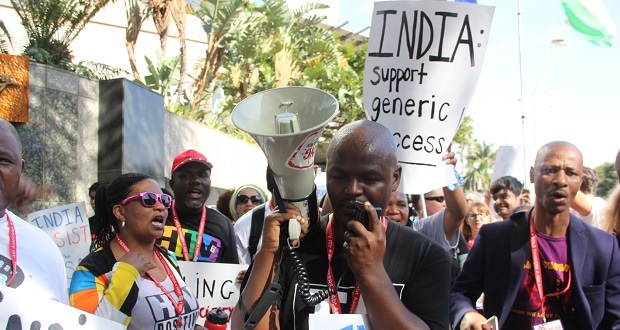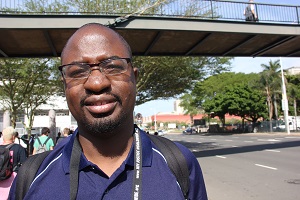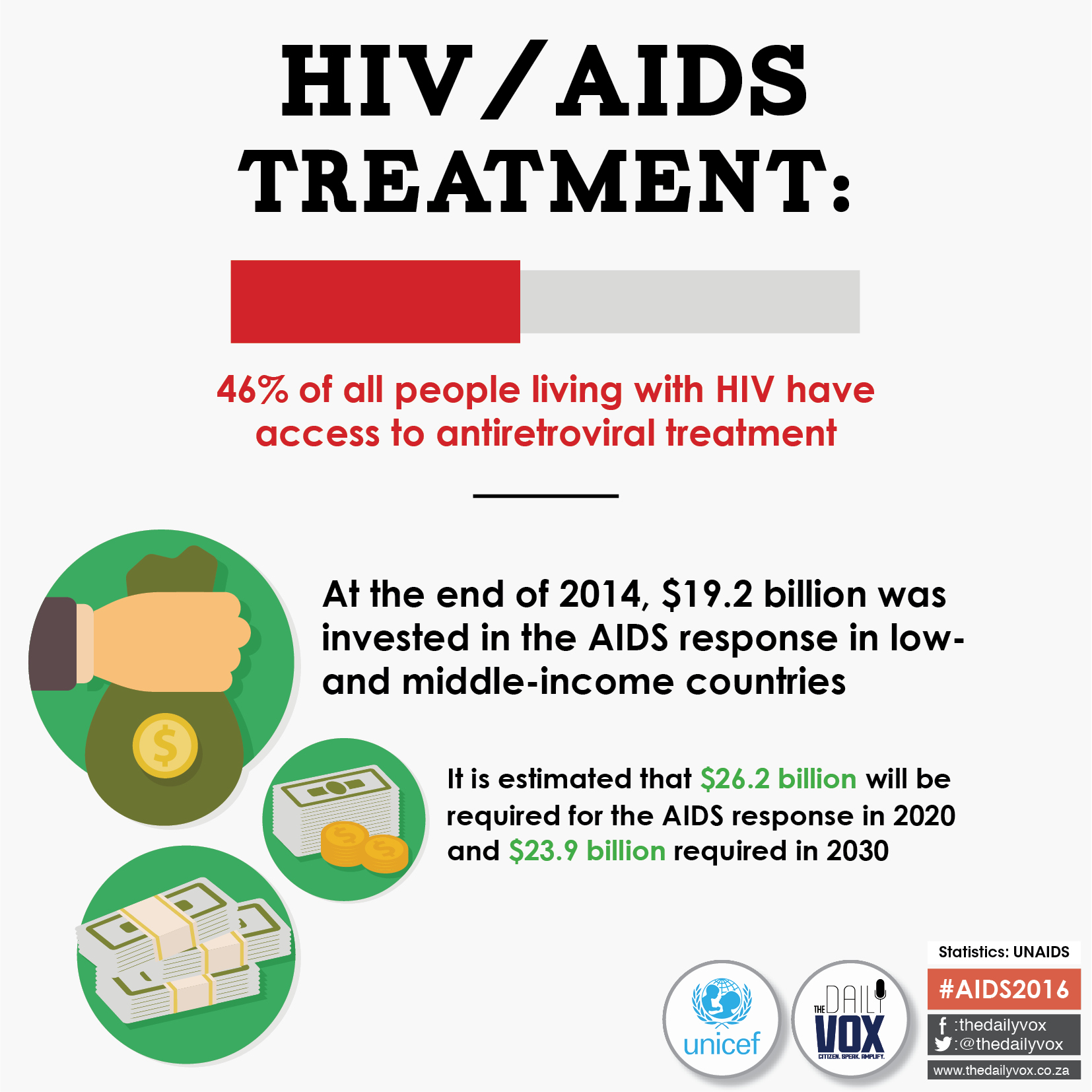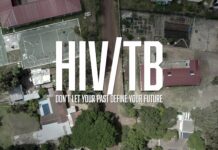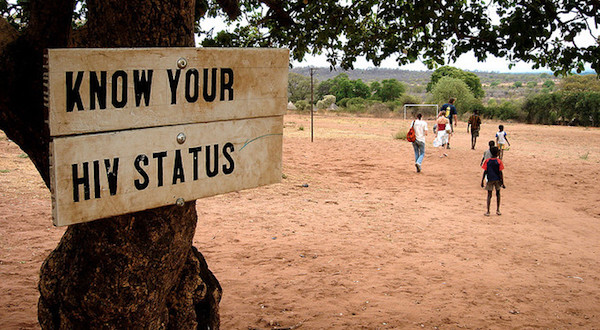On Thursday, about 150 local and international activists marched to the Indian consulate in Durban to deliver a message to the Indian consul-general to take to his government.
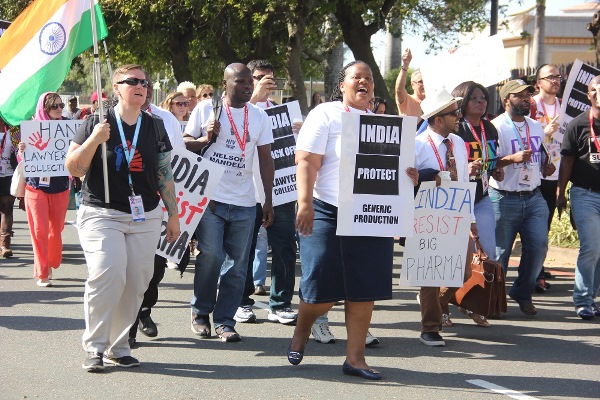
“We call on the Indian government to reverse course on a series of actions that threaten to undermine the global AIDS response,†said the activists in a statement. For many years, multinational companies have been trying to close down the Indian generic industry due to competition; India offers an alternative supply of generic medicines compared to pharmaceutical companies in the United States and Switzerland.
Executive director of SECTION27, Mark Heywood, said the request to close down the industry wasn’t a new thing. The problem however, is that the Indian government is willing to comply with the United States’ wishes instead.
“They’ve, for a long time, been trying to exert pressure on the Indian government because India has refused to adopt patent laws that are stringently very pro-intellectual property. India has taken advantage of flexibilities in international law,†Heywood said, “the United States exerts pressure in many mysterious multidimensional, from many, many, different points, waysâ€.
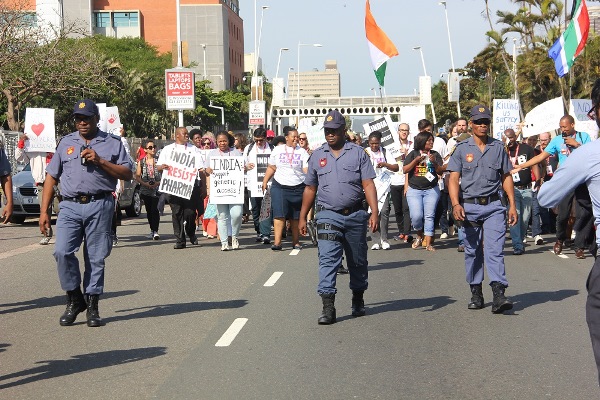
Allen Maleche, a 40-year-old lawyer from Kenya, says South Africans should care about where generic medicines are manufactured:
[dropcap]”[/dropcap]The march was about the attack by the Indian government on civil organisations in India, particularly Lawyers Collective, a brilliant group that fights for the rights of people who are living with HIV. It was also about the attack by the American government and other governments to pressure them to adopt laws and accept policies that’ll affect access to the American government to countries like Kenya and SA and many other countries in Africa. South Africans should care because if the generic medicines are made expensive by agreements with the Indian government and multinational companies, access to medicine would be difficult. SA has the highest number of people on treatment, and these decisions would’ve affect them negatively. We will keep following up and putting pressure via law and others spaces with different organisations to put pressure on the Indian government. Citizens can sign our online petition on the Health Gap website or use the hashtag #LawyersCollective as a sign of solidarity.“
The activists’ also raised concern over the closing space both for the civil society groups. These have been instrumental in the Aids response nationally and internationally and for the public health-supporting policies that ensure quality, affordable generic drugs for the world.
“Civil society in India, activist groups, legal groups like the Lawyers Collective have continually put pressure on the Indian government to make medicines available not only for other countries in the world. They’ve helped to get medicines to countries like South Africa but also to their own people in India. If you close the space for civil society, civil society in defence is not able to play that role in ensuring accountability, transparency and openness,†Heywood said.
South African activist, Ozile Mdletshe (48), explained why he was at the march:
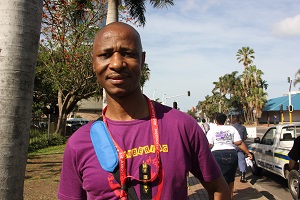
The activists called on the Indian government to:
- Implement policies to ensure Indian generic companies cannot be taken over by multinational pharmaceutical companies thereby eliminating the generic competition people living with HIV and others depend on for affordable medicines.
- End attacks on the Lawyers Collective and other NGOs and ensure the Foreign Contributions Regulation Act and other laws are not misused for political purposes
- Resist pressure from the US and multinational pharmaceutical companies to eliminate, undermine or cease using the critical public health safeguards in India’s Intellectual Property Laws including strict patent standards, oppositions, and compulsory licensing, that allow India to provide 90% of the world’s antiretrovirals.

